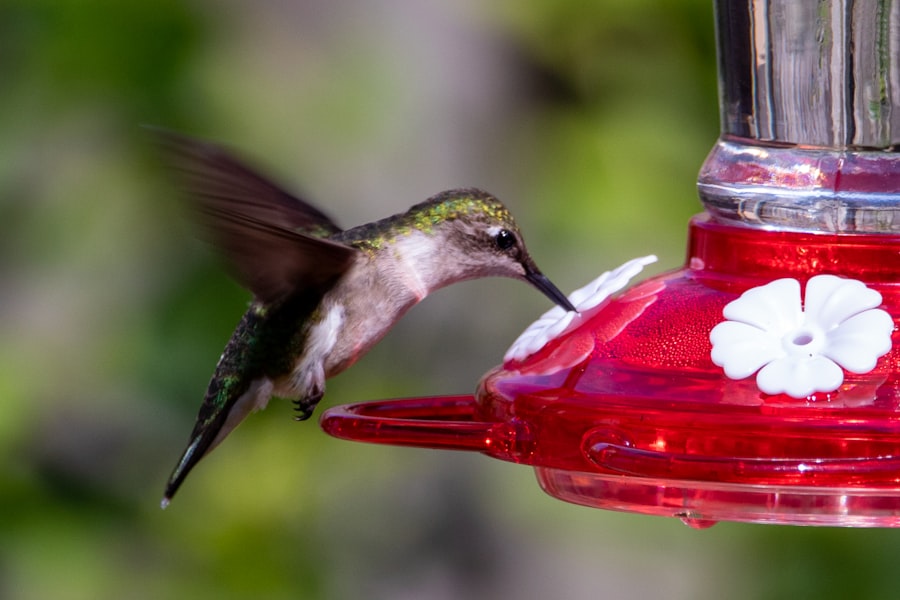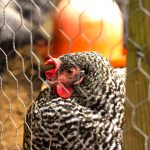Keeping chickens as house pets offers various benefits and challenges. Chickens are known for their sociable nature, making them suitable companions for both adults and children. They can provide entertainment with their unique behaviors and personalities.
One practical advantage is the production of fresh eggs, which can be valuable for cooking and baking. Chickens are generally low-maintenance pets compared to some other animals. They require minimal grooming and can be trained to follow basic commands.
Additionally, chickens can assist with pest control in homes and gardens by consuming insects and other small pests. However, there are potential drawbacks to consider. Chickens can be messy, necessitating regular cleaning of their living space.
They may also be noisy, particularly when laying eggs or feeling distressed. These factors should be taken into account when deciding to keep chickens as indoor pets. With proper care and attention, the challenges associated with keeping chickens as house pets can be managed.
For many, the benefits of companionship, fresh eggs, and pest control outweigh the potential drawbacks.
Table of Contents
- 1 Choosing the Right Breed of Chicken for Your Home
- 2 Creating a Safe and Comfortable Living Space for Your Chickens
- 3 Feeding and Caring for Your Chickens
- 4 Training and Socializing Your Chickens
- 5 Dealing with Potential Challenges of Keeping Chickens Indoors
- 6 Enjoying the Rewards of Having Chickens as House Pets
- 7 FAQs
- 7.1 What are the benefits of keeping chickens as house pets?
- 7.2 What are some important considerations before keeping chickens as house pets?
- 7.3 What do chickens need in terms of housing and space?
- 7.4 What do chickens eat and how often do they need to be fed?
- 7.5 What are some common health concerns for chickens kept as house pets?
- 7.6 Are there any legal considerations for keeping chickens as house pets?
Key Takeaways
- Chickens can provide companionship, entertainment, and fresh eggs as house pets.
- Consider factors such as size, temperament, and egg-laying capabilities when choosing a breed of chicken for your home.
- Provide a secure coop, nesting boxes, and access to fresh air and sunlight for your indoor chickens.
- Feed your chickens a balanced diet, provide fresh water, and regularly clean their living space to ensure their health and well-being.
- Socialize and train your chickens using positive reinforcement and patience to build a strong bond and prevent behavioral issues.
Choosing the Right Breed of Chicken for Your Home
Size and Space Considerations
The size of the chicken and the amount of space you have available in your home are crucial factors to consider. Some breeds, such as bantam chickens, are smaller in size and may be more suitable for indoor living spaces.
Temperament and Purpose
The temperament of the breed is also an important consideration, as some chickens may be more docile and friendly, while others may be more skittish or aggressive. Additionally, you should consider the purpose of keeping chickens in your home. If you’re looking for fresh eggs, breeds like Rhode Island Reds or Leghorns may be a good choice. If you’re looking for companions, breeds like Silkies or Orpingtons may be more suitable.
Climate and Environmental Factors
The climate and environment in which you live should also be taken into account. Some breeds may be better suited to certain climates than others. For example, cold-hardy breeds like Plymouth Rocks or Wyandottes may thrive in colder climates, while Mediterranean breeds like Leghorns or Minorcas may do better in warmer climates.
Overall, choosing the right breed of chicken for your home requires careful consideration of size, temperament, purpose, and environmental factors.
Creating a Safe and Comfortable Living Space for Your Chickens

Creating a safe and comfortable living space for your chickens is essential for their health and well-being. Firstly, it’s important to provide a spacious and well-ventilated coop or living area for your chickens, with plenty of room for them to move around and stretch their wings. Additionally, it’s important to provide nesting boxes for your hens to lay their eggs, as well as perches for them to roost on at night.
Furthermore, it’s important to provide bedding material such as straw or wood shavings to keep the coop clean and comfortable for your chickens. Regular cleaning and maintenance of the coop is also essential to prevent the buildup of waste and bacteria. Additionally, it’s important to provide access to fresh water and a balanced diet for your chickens to ensure their health and well-being.
It’s also important to consider the safety of your chickens from potential predators such as cats, dogs, or wild animals. Ensuring that the coop is secure with strong fencing and locks can help protect your chickens from harm. Overall, creating a safe and comfortable living space for your chickens is essential for their happiness and well-being.
Feeding and Caring for Your Chickens
Feeding and caring for your chickens is an important aspect of keeping them healthy and happy. It’s important to provide a balanced diet for your chickens that includes a mix of grains, seeds, fruits, vegetables, and protein sources such as mealworms or insects. Additionally, it’s important to provide access to fresh water at all times to keep your chickens hydrated.
Furthermore, it’s important to monitor the health of your chickens regularly and seek veterinary care if you notice any signs of illness or distress. Regular grooming and maintenance of your chickens’ feathers and nails can also help keep them healthy and comfortable. Additionally, providing opportunities for exercise and mental stimulation through toys or enrichment activities can help keep your chickens happy and content.
It’s also important to consider the seasonal needs of your chickens, such as providing additional warmth in the winter months or shade in the summer months. Overall, feeding and caring for your chickens requires regular attention and consideration of their dietary, health, and environmental needs.
Training and socializing your chickens can help create a strong bond between you and your pets. Chickens are intelligent animals that can be trained to follow simple commands such as coming when called or perching on command. Positive reinforcement techniques such as treats or praise can be used to encourage desired behaviors in your chickens.
Furthermore, spending time with your chickens on a regular basis can help socialize them and build trust between you and your pets. Handling your chickens gently from a young age can help them become more comfortable with human interaction. Additionally, providing opportunities for your chickens to interact with other animals or people can help them become more sociable and well-adjusted pets.
It’s also important to consider the individual personalities of your chickens when training and socializing them, as some may be more outgoing and eager to interact with humans, while others may be more reserved or shy. Overall, training and socializing your chickens can help create a strong bond between you and your pets while also helping them become well-behaved and confident animals.
Dealing with Potential Challenges of Keeping Chickens Indoors

Managing Mess and Hygiene
Regular cleaning and maintenance of the living area are crucial to prevent the buildup of waste and bacteria. This includes daily removal of soiled bedding, cleaning of feeding and watering areas, and disinfecting of all surfaces.
Minimizing Noise and Disturbances
Chickens can be noisy, especially during egg-laying or when they’re feeling distressed. Providing a quiet and secluded nesting area for your hens can help minimize noise disturbances in the home. Additionally, ensuring that your chickens have a comfortable and stress-free environment can also reduce noise levels.
Controlling Odors and Interactions
Regular cleaning of the coop and providing proper ventilation can help minimize unpleasant odors. It’s also important to consider the potential impact on other pets or family members in the home. Ensuring that all animals are properly introduced and supervised when interacting with each other can help prevent any potential conflicts or issues.
Enjoying the Rewards of Having Chickens as House Pets
Despite the potential challenges of keeping chickens indoors, there are many rewards to be enjoyed from having chickens as house pets. Firstly, having fresh eggs readily available from your own backyard can be a rewarding experience that can enhance your cooking and baking endeavors. Additionally, having chickens as house pets can bring a sense of joy and companionship to your home with their friendly nature and quirky behaviors.
They can provide entertainment and amusement with their unique personalities and interactions with each other. Furthermore, having chickens as house pets can also provide an educational experience for children by teaching them about responsibility, animal care, and where food comes from. It can also foster a greater appreciation for nature and the environment.
Overall, enjoying the rewards of having chickens as house pets can bring a sense of fulfillment, joy, companionship, and practical benefits to any home. With proper care and attention, keeping chickens indoors can be a rewarding experience that enhances the overall quality of life for both humans and animals alike.
If you’re considering keeping chickens as house pets, you may also be interested in learning about different chicken coop interior ideas. Check out this article on chicken coop interior ideas for some inspiration on how to create a comfortable and functional living space for your feathered friends.
FAQs
What are the benefits of keeping chickens as house pets?
Keeping chickens as house pets can provide several benefits, including a fresh supply of eggs, natural pest control in the yard, and the enjoyment of their unique personalities and behaviors.
What are some important considerations before keeping chickens as house pets?
Before keeping chickens as house pets, it’s important to check local ordinances and regulations regarding owning chickens, ensure proper housing and space for the chickens, and consider the time and effort required for their care and maintenance.
What do chickens need in terms of housing and space?
Chickens require a secure and predator-proof coop for shelter at night, as well as a spacious outdoor area for foraging and exercise during the day. The coop should also provide nesting boxes for egg-laying and perches for roosting.
What do chickens eat and how often do they need to be fed?
Chickens require a balanced diet of commercial chicken feed, supplemented with fresh fruits, vegetables, and occasional treats. They should have access to food and fresh water throughout the day, and their feed should be adjusted based on their age and activity level.
What are some common health concerns for chickens kept as house pets?
Common health concerns for chickens kept as house pets include parasites, respiratory infections, and injuries. Regular veterinary check-ups, proper hygiene, and a clean living environment can help prevent these issues.
Are there any legal considerations for keeping chickens as house pets?
There may be legal considerations for keeping chickens as house pets, such as local ordinances regarding the number of chickens allowed, noise regulations, and zoning restrictions. It’s important to research and comply with these regulations before keeping chickens as house pets.
Meet Walter, the feathered-friend fanatic of Florida! Nestled in the sunshine state, Walter struts through life with his feathered companions, clucking his way to happiness. With a coop that’s fancier than a five-star hotel, he’s the Don Juan of the chicken world. When he’s not teaching his hens to do the cha-cha, you’ll find him in a heated debate with his prized rooster, Sir Clucks-a-Lot. Walter’s poultry passion is no yolk; he’s the sunny-side-up guy you never knew you needed in your flock of friends!







